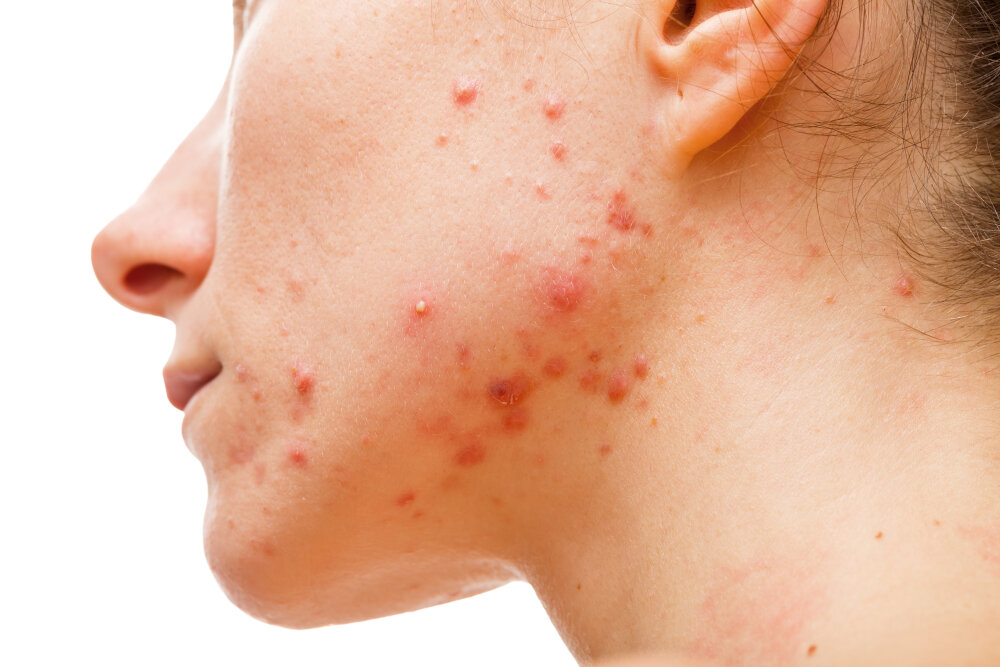
PCOS & ACNE
Like most women, at some point in your life, you will have experienced acne. And always at the worst possible time. The day of your Matric dance, the morning of your wedding or just before that interview for a glamorous new job.
Usually striking around puberty, it can continue into early adulthood. And while it might be mild and manageable for some women, it can much more serious for others. We’re talking about the kind of acne that no amount of make-up can truly hide. The kind that leaves scars – both physical and psychological, including social anxiety, low self-esteem and depression.
What causes acne?
On the surface, acne is caused by an increase in sebum (oil produced in the skin) and a build-up of dead skin cells which block the pores, providing food for naturally occurring skin bacteria P.Acnes. As the bacteria gorge on the oil and dead skin cells, they multiply, causing blocked and infected pores. Your immune system reacts to the bacterial growth by sending in white blood cells (pus) in order to combat the infection. The result – pustules or pimples and at a deeper level, painful and unsightly cysts. Sound familiar?
A potential deeper underlying cause
The thing is, chronic and persistent acne is not a normal condition. And, new research tracking a poorly understood and underdiagnosed ovarian health condition says that persistent acne, especially when coupled with weight gain (excessive weight loss), irregular, infrequent or absent periods, and unusual excess hair growth (hirsutism) could be early warning signs of Polycystic Ovary Syndrome (PCOS). A condition that’s usually only picked up when a woman struggles to conceive.
